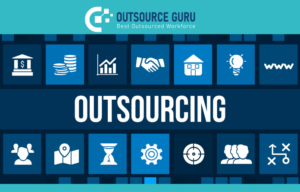Co-Sourcing is The Next Stage in The Evolution of Shadow Accounting

The private equity environment in the UK and EU is known for relying on a very specific and entrenched back-office outsourcing arrangement, with most GPs choosing to outsource accounting and investor reporting needs to a fund administrator while simultaneously practicing shadow accounting by keeping its own duplicative accounting ledger internally.
This arrangement, however, may be on the verge of being supplanted by a new innovative software and service partner arrangement known as co-sourcing, in which a fund administrator executes a fund manager’s accounting and reporting workflows through that fund manager’s back-office software system.
Shadow accounting’s drawbacks
At first glance, the typical back-office approach appears inefficient – GPs pay for both a fund administrator and additional staff to meet the needs of this current model and generate two sets of data. However, in the absence of a better approach, the private equity industry has embraced this practice due to a few driving factors.
Specifically, UK and EU regulations governing AIFMs (alternative investment fund managers) require them to be able to share any fund document with the respective regulatory bodies at any time. As a result, having this data in-house is critical to complying.
Second, many LPs, particularly large funds, frequently require a backup set of books to be kept internally as a due diligence measure. Finally, some GPs simply value the double-check that shadow books can provide.
However, co-sourcing, a new hybrid administration model gaining traction in the United States, may offer managers a streamlined option that allows them to keep their data in-house while reducing administrative burden.
What is the process of co-sourcing?
Co-sourcing combines the best features of both outsourcing and insourcing. Fund managers maintain data control by installing their own software on their systems and granting access to their chosen fund administration partner. The fund administrator then handles all accounting and investor reporting via their access to the manager’s back-office system.
The advantages for both parties are immediately apparent.
For investment managers:
- Software selection. They choose their own software for their general ledger and investor portal rather than being locked into their fund administrator’s contracted software. The fund manager has more control over their own LP experience, particularly when it comes to their own investor portal selection.
- Data storage is centralized. They keep control of their data in a single location, which is appealing from both a data security and an LP relations standpoint, as they are no longer forced to go through a chain of communication with their fund administrator every time an investor requests ad hoc reporting.
- Internal resources have been released. They benefit from a fund administrator’s skill and expertise, allowing them to maintain a smaller back-office team or use their back-office team for more value-added tasks other than shadow book oversight.
- Reduced risk in fund administrator selection. They enjoy the benefits of working with a partner without the risk of remaining with a fund administrator who isn’t the best fit. Back-office data ramp-up can take a significant amount of time and resources in an outsourcing model. Now that all of their data is on their own systems, they can leave a failing partnership and find a new one without the hassle of moving their accounting data from firm to firm.
For fund administrators:
- Gaining new revenue. Fund administrators would see a plethora of new business opportunities as they gained access to fund managers who would never consider using a fund administrator without this unique combination of insourcing and outsourcing.
- Reduced IT and administrative costs. Co-sourcing removes certain burdens that divert fund administrator teams’ attention away from the true value they seek to add in handling a fund manager’s accounting and investor reporting. From technology troubleshooting to responding to LP inquiries, these responsibilities would no longer fall to them, allowing them to focus on shining a spotlight on their service and solidifying the client partnership.
What would a co-sourced future look like for European private equity managers?
Finally, today’s model of shadow accounting in tandem with fund administration meets the needs of the majority of private equity managers and has deep roots in Europe. Few question the setup, and it is likely to remain the go-to back-office arrangement for the time being. However, as a new model emerges that meets all of these needs while creating efficiencies for both sides of the existing arrangement, we will see industry participants latch onto the innovation – first among emerging managers and smaller, nimbler fund administrators, before moving up and becoming a legitimate trend for the industry’s larger players. Co-sourcing, in my opinion, has a natural place in the European private equity world.
Source : funds-europe
________________________
About Skyhigh.Vip
Skyhigh.Vip is a global institutional investor with a vast interest in Arts / Construction / Education / Business Services / E-Sports and various other growth industries.
Several of its popular portfolios include GO Chambers which is the world’s largest business chamber listing provider with over 30,000 active chambers as its members.
Outsource Guru is the global choice for Business Process Outsourcing that offers a full stack of services for all aspects of business process flow and together with Flexgigzz.com as a platform for freelancers aims to provide best services for many businesses.
For growth industries there is Point of Authority for a professional E-sport team and gaming hardware superstore, and there is AtelierAuction which is an investable art auctioneer and being in the art scene for decades.







